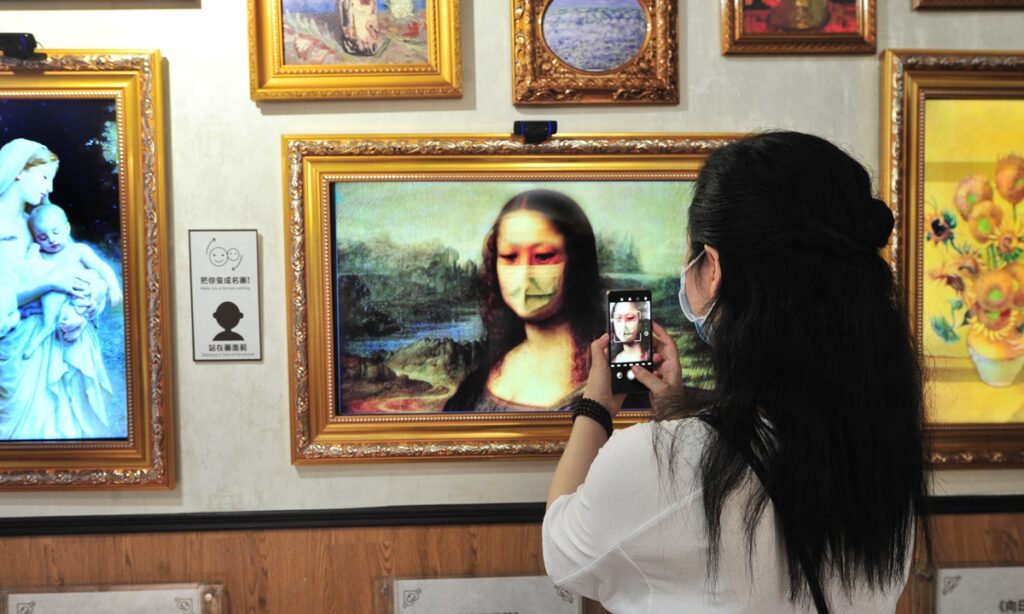An influx of videos featuring US singer Taylor Swift and Rachel Brosnahan from hit TV drama The Marvelous Mrs. Maisel speaking fluent Chinese, as well as Chinese stand up comedians speaking perfect English, have gone viral on the internet in recent days. Instead of being nice surprises, these video clips have sparked fear and discussions about regulating technology, as it turns out they were generated by artificial intelligence (AI).
In those videos, Swift “speaks” fluent Chinese with only a little accent. What’s more, her mouth movement matches the Chinese words. Brosnahan also stands on the stage and pronounces perfect Chinese with ease, saying, “That’s why I need to get really famous. If you are famous, everyone loves you.”
Guo Degang, a famous Chinese crosstalk performer, can be seen doing crosstalk in fluent English in one video.
Later it was revealed that all these videos were generated by AI software. The software is capable of making the above-mentioned video clips by simply uploading the original videos and selecting the language in which you want the people to speak, Chinese media reported.
The videos have generated heated discussion online.
“Those clips made my hair stand up. Imagine how easily this technology can be used to destroy someone’s reputation,” said a user on China’s X-like platform Sina Weibo.
“Technology is truly a double-edged sword. The consequences can be terrifying if AI develops without regulation,” said another Sina Weibo user.
Using AI to make videos such as Swift speaking Chinese and Guo speaking English may violate their rights, as Chinese law stipulates that works such as crosstalk cannot be used without the copyright owner’s approval. Moreover, people’s images cannot be used unless approved by the people themselves, said Yue Shenshan, a Beijing-based lawyer.
Last week, Indonesian authorities said a video apparently showing Indonesian President Joko “Jokowi” Widodo delivering a speech in Chinese was a deep fake made using AI tools. The clip has racked up millions of views. Media found the original clip, which shows the leader speaking in English during a gala in 2015.
In recent years, AI technology has been widely applied to the secondary creation of short videos, such as AI face swapping and voice changing. In previous years, TV drama producers also used this technology to replace actors’ faces.
There are also cases in which outlaws have used AI technology to change faces to fool children and commit crimes. This technology has also been used to make fake news and spread rumors.
China’s National Information Security Standardization Technical Committee has worked out a draft of basic security requirements for generative AI services and started to solicit public opinions in October.
The requirements outline fundamental security criteria for generative AI services, covering corpus security, model security, security measures and security assessments. These criteria are applicable to providers offering generative AI services to the public within China. Service providers can conduct security assessments independently or engage third-parties to do so, in accordance with these criteria. The requirements can also serve as reference for relevant regulatory authorities when evaluating the security of generative AI services.
Concerning future AI regulation, Qin An, deputy director of the Expert Committee of Counter-terrorism and Cyber Security Governance at the China Society of Police Law, told the Global Times that one step involves protecting citizens’ information, while another step is requiring platforms to clearly mark videos or pictures doctored by AI.
In general, AI is still in the budding stages of development, and the risks have not been fully exposed, said Qin. However, he also said a tolerant and cautious attitude should be adopted in terms of AI development, so as not to stifle the innovative development of this technology.
(Global Times)




